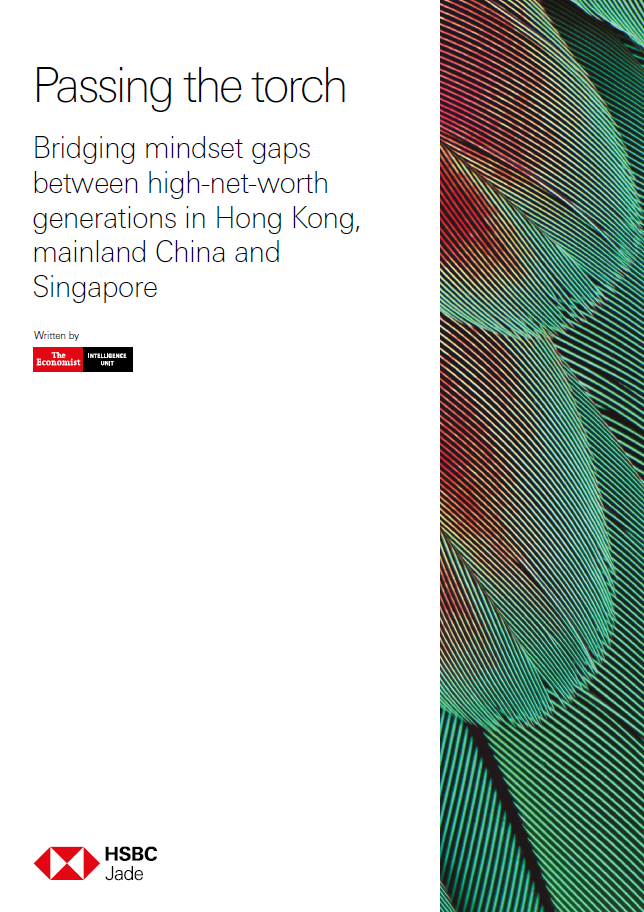The population of high-net-worth individuals (HNWIs) in Asia is growing, in terms of numbers and wealth held; it is also evolving as generations today have different needs and interests. To gauge how legacy planning may also be evolving, The Economist Intelligence Unit studied two groups in particular across Hong Kong, mainland China and Singapore—“global citizens” and “business successors”. Research highlighted the following key findings:
- Younger HNWIs are increasingly global, living outside home countries for educational, professional or lifestyle reasons, but how much time they spend in different countries, and whether they hold residency and investments in different jurisdictions, has implications that add complexity to legacy planning.
- Younger generations often wish to take family businesses in new directions, starting new divisions or building philanthropic arms.
- Family businesses do not need a family member running them in order to survive but they do need a succession plan.
- How, or even if, extended family are involved in a family business becomes more complicated with each generation, especially as marriages and divorces alter family structures.
- HNWIs typically look to diversify assets; younger generations tend to seek growth in their legacy planning rather than wealth preservation alone.
Our thanks are due to the following individuals (listed alphabetically by surname) for providing their time and insight:

Download the full report to find out more about high-net-worth individuals' perspectives on legacy planning.






